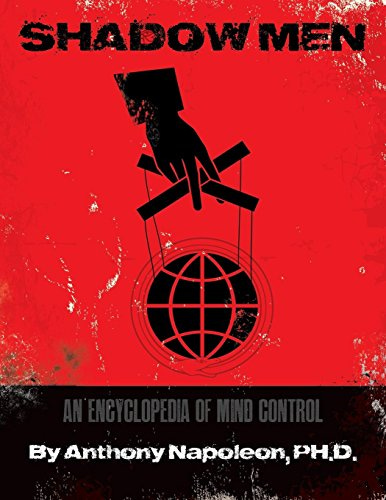Badlands Media will always put out our content for free, but you can support us by becoming a paid subscriber to this newsletter. Help our collective of citizen journalists take back the narrative from the MSM. We are the news now.

This feature will be the first in a series discussing the Nature of Civilizations.
How do tyrants and deceivers gain control over the steering wheel of a civilization? Why would a stable anchor at the center of society act as a shield against tyranny, while it propels humanity forward toward lasting freedom and prosperity?
Beating at the heart of any social grouping is a central focus—a steering wheel.
It propels a family, town, city, or nation forward, guiding like a collective labor of the people working together in society. When it’s guided by things of objective truth, beauty, and goodness, civilization thrives and the people are free of pain, suffering, and needless toil.
The benefit of participation is stability and the freedom that comes with sharing the burdens of life together. Free time and increased freedom of expression of one’s desires grow as civilization advances in the skill of effective cooperation.
In a home, the more each member of the family performs their duties as a collective, the more freedom each member can enjoy as an individual. For instance, if the kitchen is kept clean after each use, then the next person who wants to use it is free to do so without having to clean up the mess of another. In the reverse, if members of a family refuse to do their duty to clean up after themselves, then the sink will be filled with dirty dishes, meaning no one has the freedom to use it.
Freedom to enjoy the rewards of civilization cannot exist without the duty to do one’s fair share of labor.
Deceivers and manipulators figured out long ago that they could lie, cheat, and otherwise manipulate honest people, so these deceivers could receive the rewards of the labors of others without having to do their fair share. Over time, these parasites became the tyrannical elites, spending their abundant free time figuring out ways to control the steering wheel of civilizations so that the people within them would unwittingly serve the secret agenda of the tyrants.
The physics of civilization, so to speak, helps us understand the relationship between freedom and duty, and how common purpose acts as the glue to keep everyone working together.
Parallel Duties and Perpendicular Freedoms

From an outsider’s perspective, it can seem like the world we live in today is nothing but division. But this apparent division, while real, is a thin veneer masking the vast coordination of modern-day civilization.
While we might bicker about censorship online, whether the 2020 election was stolen, or a thousand other issues, for the most part, everyone pays their taxes, works their jobs, and otherwise behaves in such a way that civilization as a whole remains intact.
Stated another way, the divisions we think about acts as a kind of distraction in that most people continue to do what they need to do to keep the parasitic elite in control.
The relationship between a citizen’s participation in society and the benefits produced for the whole can be thought of as parallel duties accruing perpendicular freedoms.
A duty is something we need to do to achieve a certain result; for instance, a team of baseball players agrees to attend practices, maintain fitness, and show up to games on time. Because they fulfill these duties, they produce the benefit of a game of baseball that they each play and enjoy.
Civilizations have many goals, but for the most part, there are fairly consistent and uniform survival values that get expressed in unique ways. For instance, every civilization has to feed its citizens (the value of satiating hunger) but how that value is approached depends on whatever goals are envisioned to do so, such as hunting, gathering, or farming—all of which produce the results of feeding the citizens.
In the past, feeding citizens was more of an every-man-for-himself enterprise. But in modern societies, the level of trust and cooperation is much higher, allowing most of the population to focus on other tasks, and in return, receive basic needs. In this example, the dedication to duty of the farming industry generates benefits of food that can be shared with everyone. Those citizens who receive the food now have the freedom to focus on other things.

A farmer needs tools. He needs a plow, rope, scythe, and more to produce his food for the larger population. But farming takes a lot of time and energy, which means he likely won’t be able to farm and craft the tools he needs. The farmer’s necessity is another man’s opportunity. A blacksmith, who needs food, produces the tools the farmer needs. The farmer, who needs tools, produces the food the blacksmith needs. Both the farmer and blacksmith, recognizing their mutual needs and benefits decide to form an agreement in which each is contracted to perform a duty, and in return, receive a benefit. The specific goals are different but the underlying value that gives rise to the goals is the same—farmers and blacksmiths need support to survive and thrive.
This common and central focus of values creates an anchor point, both of them work toward the goal in parallel, in partnership—hence they are both embracing their parallel duty to cooperate for survival and thriving reasons.
The benefits, like the goal, are unique—the farmer gets tools and the blacksmith gets food—both of which translate to increased freedom. What they choose to do with these freedoms is up to them. So long as they decide not to violate each other’s rights by committing crimes, they can spend their freedoms as they see fit. Therefore, parallel duties produce perpendicular freedoms.
Perpendicular freedoms, given what we just discussed, are the freedoms accrued by civilization as a result of parallel duties—people working together as a whole, freedoms that may or may not benefit society but wouldn’t be available unless citizens participated by performing a parallel duty.
A bus driver has a place to live, food to eat, water to drink, clothes to wear, and so on, as a result of the 40 hours a week they devote to the duty of their job. In return, they have the freedom to learn piano, cook, watch anime, or take girls out on dates—none of which would be possible without having the driver’s survival needs met first.
As a civilization advances, a monetary system is invented to measure the contribution of each member. This system can later be hijacked by the parasitic elite to gain an unfair advantage over the entire civilization.
In small-scale social groupings—like 100 people living and working on a sailing ship that carries trade goods from India to Europe—the parallel duties and perpendicular freedoms are easy to identify.
If the cook on the ship stops cooking, the entire crew quickly learns they have no food to eat. Depending on the form of the social grouping, there’s a time and space lag time that makes it easier to hide when one person isn’t doing their fair share of work (a parallel duty). The bigger the grouping, it’s often easier to hide unfairness—which is why the parasitic elite like large stratified populations.
Today, we live in large-scale civilizations that were set up and organized by parasitic elites. For these elites, the ratio between parallel duty and perpendicular freedom is alarmingly out of balance. The elites often receive far more of a share of perpendicular freedoms than anyone else. With this extra time and ability to focus, they have developed increasingly more sophisticated ways to defraud the people of their labor, all while convincing the people it’s justifiable—even necessary.
Whether we’re talking about abject tyrannies like Nazi Germany or Communist China or freedom-centric civilizations like the United States, this problem needs to be solved: How are you going to keep everyone working together?
Common Purpose and the Political Elite

Historically, civilizations that thrived were ones that had a clear common purpose (common beliefs and values), producing reliable participation in the population. Reliable behavior is essential for large-scale actions and initiatives, like farming and food storage for an entire country, war efforts, building cities, or irrigation systems.
Think of it this way: Every recognizable feature of civilization, like roads, big buildings, supply chains, shipping schemes, and so on, are products of reliable participation and common purpose.
By common, I don’t mean perfectly uniform and equal thoughts and opinions shared by all people—everyone doesn’t believe in exactly the same things. Common purpose means the social layers within a civilization act in a coordinated way, supported by some shared concept, belief, creed, or motto.
For instance, the people who voted for George Bush in 2000 didn’t perfectly agree with each other. But on the issue of ‘Who should we vote for to be President of the US?’ there was enough common ground that they acted as one in terms of voting. Similarly, not everyone who joined the Great War of WWI did so for the same reasons; they had unique yet similar enough reasons to produce coordinated action in the masses.
From a civilizational perspective, common purposes, beliefs, and values act like the glue that makes group activity possible. They might not be clear, recognizable, or even make all that much sense, they just have to work well enough to create a common political identity in which those who belong to the group act together.
A family is a universally-recognizable example because each member of the family a) believes they are kin (blood relatives or connected by marriage), b) have the same last name, c) look similar, and d) lives together. All of these features and more help each individual family member feel connected to a group identity that activates social inclusion psychology; that is, members of a properly formed social group have a shared group identity, making them feel a sense of belonging.
This sense of belonging is so important that most people will be driven to keep it, whether they know it or not.
Social inclusion psychology is extremely powerful in that it can be used by good and bad actors to wield incredible influence over groups that feel a sense of common identity. This is why identity politics is one of the more reliable methods for maintaining in-group preference, which can then be used by politicians and influencers of all sorts.

In the modern age, we’ve forgotten about the power of a self-governing in-group or community—mainly because they don’t really exist in the main anymore. But the powers that be, whether they are religious figures, secular globalists, or cartel leaders in smaller-scale networks, know how to maintain common purposes to stay in power and get their agendas pushed through by manipulating social groups.
About 100 years ago, the more traditional methods of controlling self-governing groups and communities were supplanted by a mass media propaganda machine that successfully replaced close nit in-groups with disintegrated social groups. Organic groups are naturally self-directed, like a group of kids playing a game of hide and go seek. But the separation produced by mass media destabilized organic communities, causing the steering mechanism of smaller family units to increasingly rely on mass media. Social media took the situation to an entirely new level, breaking up families even more. The future metaverse virtual reality system will take the separation to even greater levels.
In the past, people were grouped by familial association, religious affiliation, race, creed, and other common beliefs, values, and purposes. They knew each other, talked often, and kept business within the community as much as possible. But now, we live next to people we rarely know anything about. Our in-group—the tribe—is now based on social media and internet clicks, which are far less able to provide benefits to members of any sort, other than a feeling of inclusion. This, of course, makes the entire population much easier to control, especially if the controllers have influence over these online (internet) tribal associations, which they most certainly do.
For the most part, the goals of the parasitic elite—the so-called Illuminati, cabal, globalists, and New World Order-types—desire ends that the vast majority of people would never willingly participate in. Mass genocide and population control, human experimentation, and abuse of children—to name a few things—aren’t palatable to most sane and normal people. This presents a problem: How are the elites going to get everyone to work together to support them in their malevolence?
This is where mass mind control techniques are needed, which were developed in the distant past by Shadow Men.
The Shadow Men
Shadow Men are psychopathic parasitic elites who employ deception, coercion, and mafioso tactics to gain power, and who often go on to become the shaman, priest-class, monarchy, or secular rulers of a civilization. This term does not refer to any particular group of cabal types, like the Davos globalists or the Chinese Communist Party syndicate. Instead, it refers to the psychological profile of members of these groups, which can all be rightfully called Shadow Men.
Shadow Men might be thought of as ancient psychologists—people who used their perpendicular freedoms to gain expert knowledge in manipulating the minds of others. They can be small-time conmen or globalists with massive influence. Their psychological profile of malevolence is so beyond the norm, most normal people have a hard time understanding them and their twisted ambitions for power and status. Their ambitions are often misunderstood as a desire for money and power—but in truth, money, and power are merely the tools of shadow men for a much darker and insidious purpose.
The term Shadow Men was coined by Anthony Napoleon, author of the book Shadow Men: An Encyclopedia of Mind Control.
Napoleon is a clinically and medically trained psychologist, forensic analyst, and lawyer, who claims to have worked directly with cabal types in Hollywood and elsewhere during his time. A full treatment of the Shadow Men psychological profile will be explored in a future post.
The main point here is that in order to keep people working together in a tyranny that unfairly funnels wealth, power, and status up to an elite, mass propaganda needs to be used on the masses.
During its height both before and after the empire, Rome had a common purpose, despite it being a melting pot of different cultures, classes, and socio-religious groups. A Roman identity was grafted onto all of these groups in some fashion to produce one of the most successful civilizations on earth—at least in terms of coordinating group actions of individual member-citizens.
Color revolution-style propaganda tactics can be extremely useful in generating common identities in social groups. For the most part, these methods are used insidiously by the parasitic elite for their benefit. But they can be used for good when a population is lost in self-deception and cabal delusion.
Arguably-positive groups working with Donald Trump, under the banner of a Great Awakening or America First ideological foundation, seek to restore a benevolent political identity to not only the United States but the world at large.
How a civilization maintains a common purpose is another challenge.
As you might imagine, the bigger the civilization, the more challenging it is to keep it together. If it tends toward tyranny, it uses force, deception, and coercion to make people participate. The Romans used conquest, violence, and slavery, which also required a socio-religious foundation (a spiritual justification for these methods) along with a cultural reinforcement mechanism to ensure all the different layers of the society played their part.
For the Romans, mystery schools and the metropolitan lifestyle of a well-functioning civilization helped foster this Roman identity.
Trump, and increasingly, Q played a prominent role in reigniting the sense of American patriotism, which itself was a much larger and sweeping movement toward freedom and away from autocratic tyranny-style governance.
Common purpose, belief, and value are the underlying mechanisms that make civilization what it is. But values can work against each other.
There’s only one ultimate value that has the power to incorporate all true and good values into itself. People that discover this ultimate value can, if they are willing, establish an undying civilization.
Value Mechanics and the Ultimate Value
If a country is like a team, then the goal the team moves toward acts as the common focus for keeping everyone on track. Like a team of climbers making their way up Mount Everest, each member of the team dedicates themselves to that goal, investing their unique specialties and passions into the collective effort. Because they work together, the task of climbing the mountain is actually attainable—which it wouldn’t be if a climber tried to do it alone.
Each climber values the goal. The values are unique to each individual; they do it for their own reasons.
Values also have cross-over. While everyone at a dinner enjoys food for unique value-oriented reasons, everyone shares the value of eating food in common.
In the case of ascending Mount Everest, the climb acts as a tool or a vehicle for each individual to gain the values they want. The photographer climbs to take amazing top-of-the-world photographs. The career hiker climbs to enter the elite club of successful Everest mountaineers.
Values are the cornerstone for maintaining coherent cooperation between people in a civilization.
Values are the Steering Wheel.
What is a value?
Values are worthy things, like being healthy, having friendships, living a fulfilling life, and so on. If you enjoy doing something, if it makes you feel good, then this is evidence that you value it in some way.
If a human being is like a car, then the values are the gas inside the tank. Values motivate us, inspire us, and they push us forward.
Values can and should be woven together—harmonized and coordinated. A single value can be dangerous if other equally important values are not incorporated.
For instance, a criminal values whatever benefit committing a crime imparts them, like stealing money from a Kwik-E Mart, sacrificing the value of peace and respect for the property of others in the process. In this sense, all criminal behavior—anti-social behavior, as it’s called—can be thought of as a disintegrated or conflicting value system.
A conflicting value system is a major problem.
For individuals, a conflicting value system can cause someone to waste their potential, such as an athlete with raw talent chasing girls instead of honing their skills. A conflicting value system can cause people to eat food they know to be toxic all while aspiring to avoid disease and sickness. A conflicting value system can cause a husband to covet other women impulsively even though he loves and admires his wife.
In the opposite direction, a person whose values work together like a well-oiled machine can do almost super-human things.
Leonardo da Vinci, for instance, was singular of mind and purpose, coordinating his ambitions so, at the very least, they didn’t conflict with each other. Elon Musk, Donald Trump, and many other highly productive people also possess the ability to coordinate their ambitions, to make sure they spend enough time and focus on each one sufficiently enough that they all move forward together as one.
The globalists are, whether we like it or not, masters of honing personal and social values. They use coercion and violence to force their own people into compliance. And they use similar techniques on others to ensure their control over society is effective for their agendas.
Taking all this into account, the more coordinated the value system that works to motivate individuals and groups, the more productive the individuals and groups can be.
Civilization today—as problem-filled as it might be—is incredibly productive.
In the past, it would take weeks if not months of work to build a home, usually involving an entire community working together to make it happen. But today, a small crew of a dozen contractors can build a home in less than a week. In the past, accumulating firewood to warm a home was a year-long project. Today, millions of homes are heated without having to go collect a single piece of wood.
As amazing as these modern developments are, they pale in comparison to what is truly possible.
As was mentioned earlier, while we do coordinate in many ways in the technologically advanced world we live in, we also spend a great deal of time divided and conflicted. A common identity would radically change this trend, provided the identity was founded on the most solid truths and values.
What is the most sweeping and common truth all people share? What is the most sweeping and common value all people share?
Answering this question with all the detail I could would take multiple installments to complete. Skipping ahead, I declare to you that the grandest and most sweeping common truth and value is a spiritual one.
Some of the most successful civilizations in history had a shared spiritual identity. For the Jews, it was the fatherhood of Yahweh. In Islam, it’s the prophet, Mohamed. These common spiritual identities produced communities that lasted over 1000 years. But they were exclusionary of non-Jews and non-muslims. Universal spiritual identities are ones like Buddhism and Christianity; at least certain sects maintain a universal theology that allows all people, regardless of their status or nature, to entire the spiritual family.
The founding fathers of the United States went meta with this concept, forming the United States civilization on a theistic belief system. This was a powerfully effective advance in the technological race of human civilization.
The founders, in effect, argued that all people could be united through a theistic worldview, the philosophic reality that a Creator-God of all things can be universally recognized by all people. And therefore, a universal father of all things naturally and logically leads to a universal brotherhood and sisterhood of mankind.
The ultimate value is a value that has the power to incorporate all other good and true values—a value singularity. The only thing we know of that has the qualities of an ultimate transcendent value that all people can be united in pursuing is the quest to seek for, know, and strive to be like the Creator of all things.
The theistic center of human civilization, as defined by the founders, was so powerful that even after the British waged all-out cultural warfare after the American colonists won their independence, it still acts as a unifying force on the world stage to this day.
The true American dream, of a fair, just, and free society, for all to enjoy as equal citizens, united under a common belief and value, has reshaped the world.
If we ever manage to overthrow the Shadow Men, which I believe is possible, the splendor and prosperity the free people of the world will enjoy is almost beyond our ability to imagine.
In future installments in this series discussing the Nature of Civilizations, we’ll explore more of the mechanics intentionally hidden from the masses by the parasitic elite.
By rediscovering this knowledge, we prepare for the day when we can truly keep the freedoms so many gave their lives to protect.
Badlands Media articles and features represent the opinions of the contributing authors and do not necessarily represent the views of Badlands Media itself.
If you enjoyed this contribution to Badlands Media, please consider checking out more of my work for free on Substack.








Very insightful analysis, perfect logic.
I very much concur with the notion that the United States (indeed the whole world potentially, but that’s not my direct concern) is operating at a high level of efficiency as compared to older times.
When it comes to society working to provide affordable solutions that respond to the needs of its people, we are definitely at a very high degree of effectiveness.
That degree of effectiveness, I would argue (and I sense that’s one of your points) is still woefully less than the potential degree of effectiveness which Americans could enjoy without needing to find new resources or even radical improvements in current technology.
America was once in a position whereby every single physical need of every single citizen was met: America’s standard of living was so much higher than any other country, it was almost unbelievable.
Yes there were inequalities and injustices, that’s not my point. My point is that American wealth, created by itself by its own people, was more than enough to sustain us as a country virtually permanently.
What changed, I would posit, is communism, which gradually and imperceptibly took hold inside American institutions at every level within a short few decades. Communistic sabotage of the American dream was deliberately introduced into the very fabric of American social and political life, including and beginning, of course in our education system.
That’s why I don’t spend much energy worrying about how the America we are on the brink of achieving (which was introduced to us all too briefly in 2016) will be able to function given the seemingly insurmountable debt and divisions we presently endure.
The America we are on the brink of achieving will have (eventually) removed all the wasteful drains on her resources. I foresee an America where there will be no need to even talk about balancing our budget, cutting entitlement spending, funding a modern infrastructure and ensuring that everyone has virtually free health care permanently.
How can any of this possibly be feasible? I believe the math is simple.
In my estimation, America has been losing more than $10 trillion every single year for the past at least 30 years through corruption and theft by the people who have been “running” our government and big business.
If we are able to amputate widespread and large scale public and private corruption from the body of America, we will easily fund everything we used to do, with plenty left over.
This reasoning makes it very easy to ignore all the RINOs and neocons who insist that America’s problems are too deep seated and complicated for the easy and false fix presented by America First and MAGA.
Trump has already shown us from 2016-2020 what is possible and precisely how much untapped potential exists in America today.
Our job is to maintain that focus, (don’t get lost in the weeds with petty squabbles and shiny objects) and do our part, however modest or grand that may be, for the common good as you articulate so well.
Thank you.
Hello Justin !
Great article, very positive, hopeful and patriotic. This writing / idea / concept could be applied anywhere in the world, regardless of any political or religious aspect. It depends first of all on the individual will of each of us!
I will have to read it a few times and maybe even translate it into French to share it! 👏🏻👍🏻
🇫🇷 🕊️ 🇺🇸